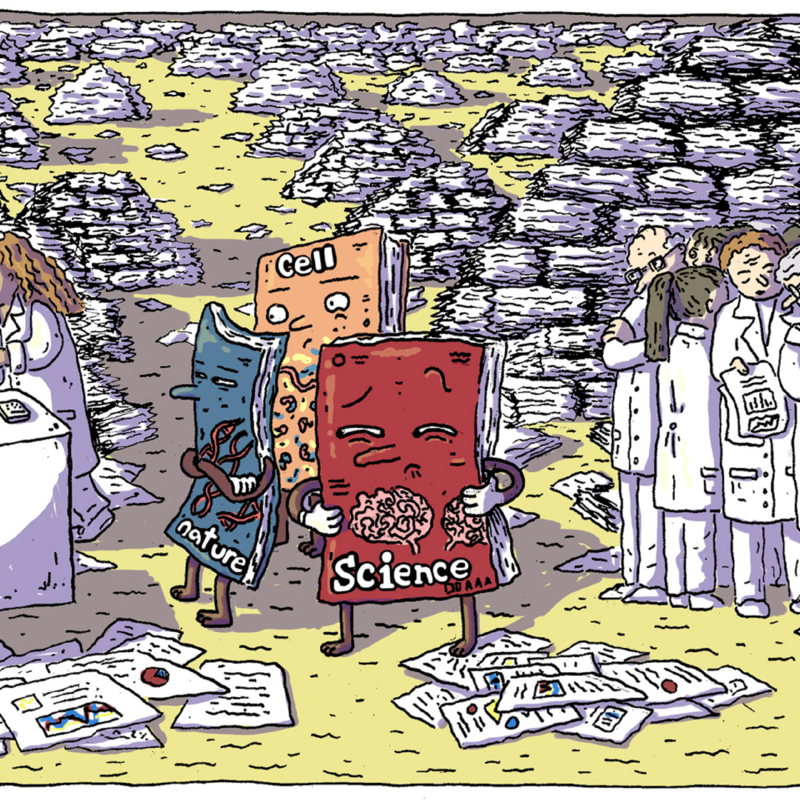Search
Between Popular Votes and the Electoral College: The Paradox of the American Electoral System
DOI: 10.17160/josha.6.11.621
Every four years, the Electoral College, a little known feature of the American Constitution, enjoys a fleeting movement of fame. For the fifth time in U.S. history, and the second time this century, a presidential candidate won the White House while losing the popular vote. Hillary Clinton won more votes than Donald Trump in the 2016 presidential election. But due to the exigency of the Electoral College, Donald Trump became president of the United States. If, according to Timm (2016), “our supposedly ‘democratic’ system for picking nominees for president is terribly broken and should be dramatically overhauled”, then this paper seeks to unravel the inherent contradictions in the American Presidential election.
Rivers in the name of Sources for the Renewable Energy
DOI: 10.17160/josha.6.11.620
Kosovo's water capacities are being ruined in the name of sources for renewable energy. Surely, those constructions for renewable energy have sparked fears of the worst wildlife damages and biodiversity of the environment. The study presented in this paper investigated the water resources of Kosovo. Focusing on the river volumes, legislation, biodiversity, sources for renewable energy, and urban planning issues. The current and possible degraded state of the environment in the name of sources of renewable energy are not acceptable, even more, when the water capacities are being ruined and creating cumulative impacts on river systems, disrupting the landscape and beauty of their characters, and affecting the function of their habitats. Surely, hydropower plants are potential of renewable energy, but it must be wise planned and carefully located, never affecting the public health and community wellbeing.
The Freiburg Tenor Joshua Kohl, an innate talent from Pennsylvania
DOI: 10.17160/josha.6.11.614
Having celebrated November 22 as the day of the musician worldwide, we take the opportunity to highlight it in our Journal, and what better way than presenting an interview with the magnificent American tenor, Joshua Kohl. The interview you read today belongs to one of our areas of the journal most read by you, our readers. He is exceptionally talented , in a world full of musical notes, instruments and always surrounded by people with different tasks who at the same time follow the same objective and share the same passion, Music. Joshua is an opera singer, a tenor from Pennsylvania with an impeccable technique, full of strength and dynamism. He is currently pursuing a career in Germany and gave us some of his time to share a little of his passion with us.
Editorial Volume 6, Issue 10
DOI: 10.17160/josha.6.11.610
This editorial concludes issue 10 of October 2019. All together we had the honor to present and publish five different articles from two different fields. We have received three wonderful poems translated from German into Romanian by Dragos Caracevici and two more interesting articles presented by Sigrun L
Editorial Volume 6, Issue 9
DOI: 10.17160/josha.6.9.604
This editorial concludes issue 9 of September 2019. All together we had the honor to present and publish five different articles from the fields of medicine, scientific research, visual arts in the field of architecture and the arts within the world of classical music. We have closed the column series of Dr. Leander Hotaki with his last column in a total of seven as a small impulse for our readers out there who are looking forward to publishing their opinions in all fields of science, humanities or arts. Not being this everything, we also have had the pleasure to be working with an excellent Journal that shares the ideal of many scientists, the idea of exploring possible phenomena located around us as a way of understanding what we do. The journal El Gato y La Caja, sees the world and knowledge similar to the way JOSHA sees it, sharing and communicating Information through an open-access plattform.
Reproducibility Crisis in the Sciences: The "Agitation"
DOI: 10.17160/josha.6.9.603
The following article, previously published in the magazine El Gato y La Caja, presents and retracts a problem in the world of today's scientific laboratories. What about experiments? Why don't scientists get the same result twice? The strange case of Dr. Jekyll and Mr. Hyde was born in 1886 and quickly became a classic to the point that, as with most classics, you don't need to have read it to know the story: a renowned scientist discovers a potion that turns him into a perverse and violent subject, dissociating his personality and changing his physical appearance. Between both personalities, there is a tragic battle that knew how to have many reversions in literature and cinema. In the last pages, Dr. Jekyll, with new ingredients, wants to repeat his successful formula. But he does not succeed, because the effect of the potion was due to an impurity in the old inputs, already consumed. This impurity is impossible to trace, which naturally prevents Dr.
Harnessing knowledge AND clinical experience to improve patient care employing an electronic system analyzing non-structured medical records: The “SimRec” Software
DOI: 10.17160/josha.6.9.602
The era of digitization reached the medical field. Technological advances and growing access to computer systems drive many health care innovations. In 2009, the United States authorized the Health Information Technology for Economic and Clinical Health (HITECH) Act. It aims to create a 21st-century health care information system. One important step to achieve this goal is the expansion and adoption of electronic health records (Blumenthal 2010). These records consist of different patient characteristics, for example, diagnostic tests, like blood tests as well as social information. Computerized clinical decision support systems (CDSS) use this electronic information to evolve recommendations for the health care staff.
Editorial Volume 6, Issue 8
DOI: 10.17160/josha.6.8.597
This summer editorial is notable for containing articles of great interest. First, we find a brief summary of what was the night of the Demetrios awards, covering the awards ceremony to its winners for the presentation of research work belonging to different disciplines and also in different languages. Followed by this summary we presented you two publications in the area of medicine and science with topics of high interest, as well as two more articles in the categories of music and society. One of them constitutes the current line of columns published until now by Dr. Hotaki around classical music and the other represents our first article in the form of a report and social criticism, hand in hand with a real testimony
Immigration Policy in Malaysia and my eight horrendous Days in Detention
DOI: 10.17160/josha.6.8.595
I am a political scientist and in the course of my career as a lecturer and pro-democracy activist, I have traversed over 50 countries across different continents. Hence, I had taken the routine details of international travel for granted – until my traumatic experience in Malaysia where I was detained under extremely dehumanizing conditions for eight days in November 2017. My offense was that I failed to get a transit visa to go from one airport in the country to another. About the Author: Dr. Mike Omilusi is an Independent Democracy Monitor, Freelance Journalist, Development Worker, and University Teacher in Nigeria.
Bright minds for a better world! a wonderful evening at the Demetrios Award 2019!
DOI: 10.17160/josha.6.8.592
a wonderful evening at the Demetrios Award 2019! The International Academy of Sciences, Humanities, and Arts wants to promote open and interested young scientists and artists and encourage interdisciplinary exchange. To this end, it awards prizes in both categories every year and combines its artistic and scientific concerns at an event. This year, the Demetrios and Pythagoras Prizes were ceremoniously awarded on 6 July 2019 as part of a concert by the Swiss youth big band Swing Kids at the Kurhaus Bad Krozingen.



.jpg?1572769890)
.jpg?1569951693)


.jpg?1567500319)

